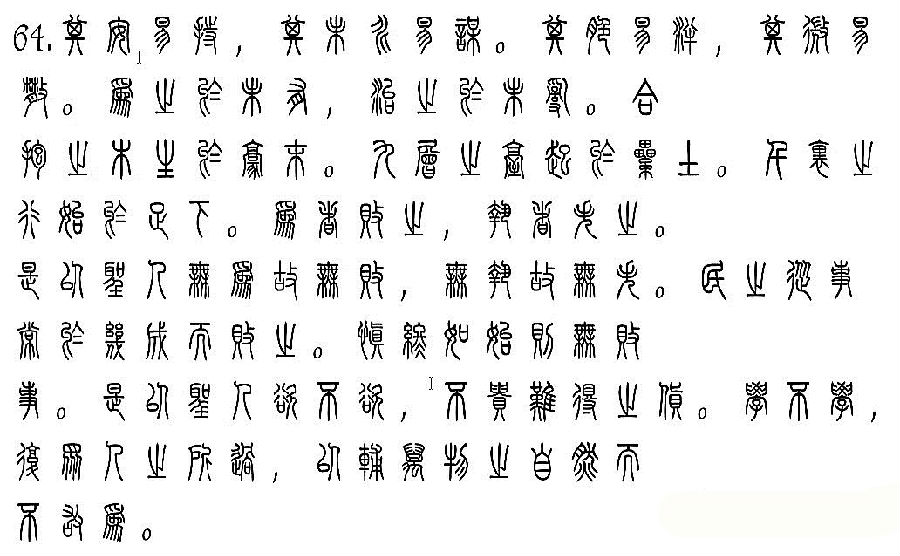Chapter 64
第六十四章
That which is at rest is easily kept hold of; before a thing has given indications of its presence, it is easy to take measures against it;
其安易持,其未兆易谋;
that which is brittle is easily broken; that which is very small is easily dispersed.
其脆易泮,其微易散。
Action should be taken before a thing has made its appearance; order should be secured before disorder has begun.
为之于未有,治之于未乱。
The tree which fills the arms grew from the tiniest sprout;
合抱之木,生于毫末;
the tower of nine storeys rose from a (small) heap of earth;
九层之台,起于累土;
the journey of a thousand li commenced with a single step.
千里之行,始于足下。

He who acts (with an ulterior purpose) does harm; he who takes hold of a thing (in the same way) loses his hold.
为者败之,执者失之。
The sage does not act (so), and therefore does no harm; he does not lay hold (so), and therefore does not lose his hold.
是以圣人无为故无败,无执故无失。
(But) people in their conduct of affairs are constantly ruining them when they are on the eve of success.
民之从事,常于几成而败之。
If they were careful at the end, as (they should be) at the beginning, they would not so ruin them.
慎终如始,则无败事。
Therefore the sage desires what (other men) do not desire, and does not prize things difficult to get;
是以圣人欲不欲,不贵难得之货,
he learns what (other men) do not learn, and turns back to what the multitude of men have passed by.
学不学,复众人之所过,
Thus he helps the natural development of all things, and does not dare to act (with an ulterior purpose of his own).
以辅万物之自然而不敢为。












